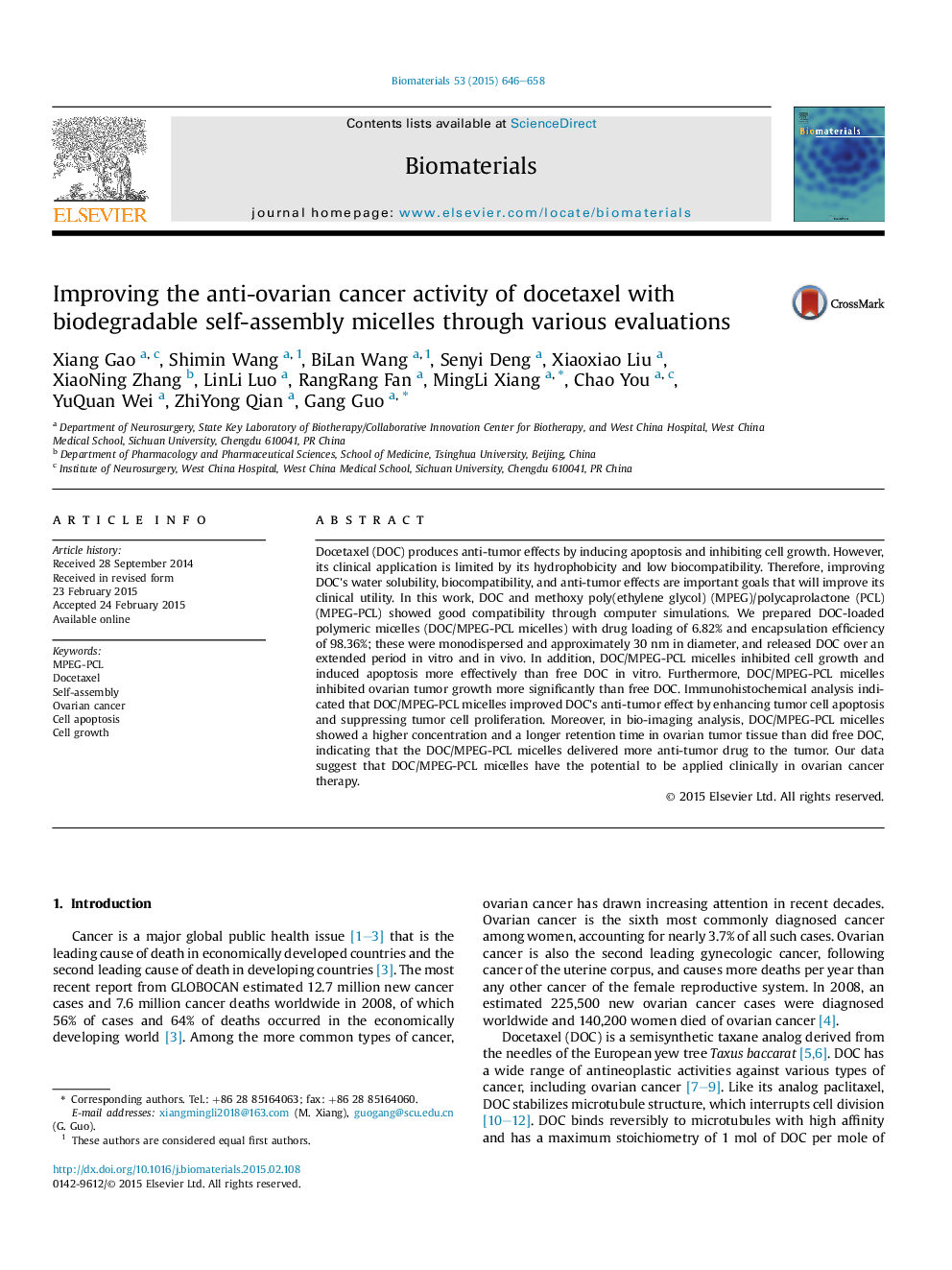| Article ID | Journal | Published Year | Pages | File Type |
|---|---|---|---|---|
| 6485900 | Biomaterials | 2015 | 13 Pages |
Abstract
Docetaxel (DOC) produces anti-tumor effects by inducing apoptosis and inhibiting cell growth. However, its clinical application is limited by its hydrophobicity and low biocompatibility. Therefore, improving DOC's water solubility, biocompatibility, and anti-tumor effects are important goals that will improve its clinical utility. In this work, DOC and methoxy poly(ethylene glycol) (MPEG)/polycaprolactone (PCL) (MPEG-PCL) showed good compatibility through computer simulations. We prepared DOC-loaded polymeric micelles (DOC/MPEG-PCL micelles) with drug loading of 6.82% and encapsulation efficiency of 98.36%; these were monodispersed and approximately 30 nm in diameter, and released DOC over an extended period in vitro and in vivo. In addition, DOC/MPEG-PCL micelles inhibited cell growth and induced apoptosis more effectively than free DOC in vitro. Furthermore, DOC/MPEG-PCL micelles inhibited ovarian tumor growth more significantly than free DOC. Immunohistochemical analysis indicated that DOC/MPEG-PCL micelles improved DOC's anti-tumor effect by enhancing tumor cell apoptosis and suppressing tumor cell proliferation. Moreover, in bio-imaging analysis, DOC/MPEG-PCL micelles showed a higher concentration and a longer retention time in ovarian tumor tissue than did free DOC, indicating that the DOC/MPEG-PCL micelles delivered more anti-tumor drug to the tumor. Our data suggest that DOC/MPEG-PCL micelles have the potential to be applied clinically in ovarian cancer therapy.
Related Topics
Physical Sciences and Engineering
Chemical Engineering
Bioengineering
Authors
Xiang Gao, Shimin Wang, BiLan Wang, Senyi Deng, Xiaoxiao Liu, XiaoNing Zhang, LinLi Luo, RangRang Fan, MingLi Xiang, Chao You, YuQuan Wei, ZhiYong Qian, Gang Guo,
